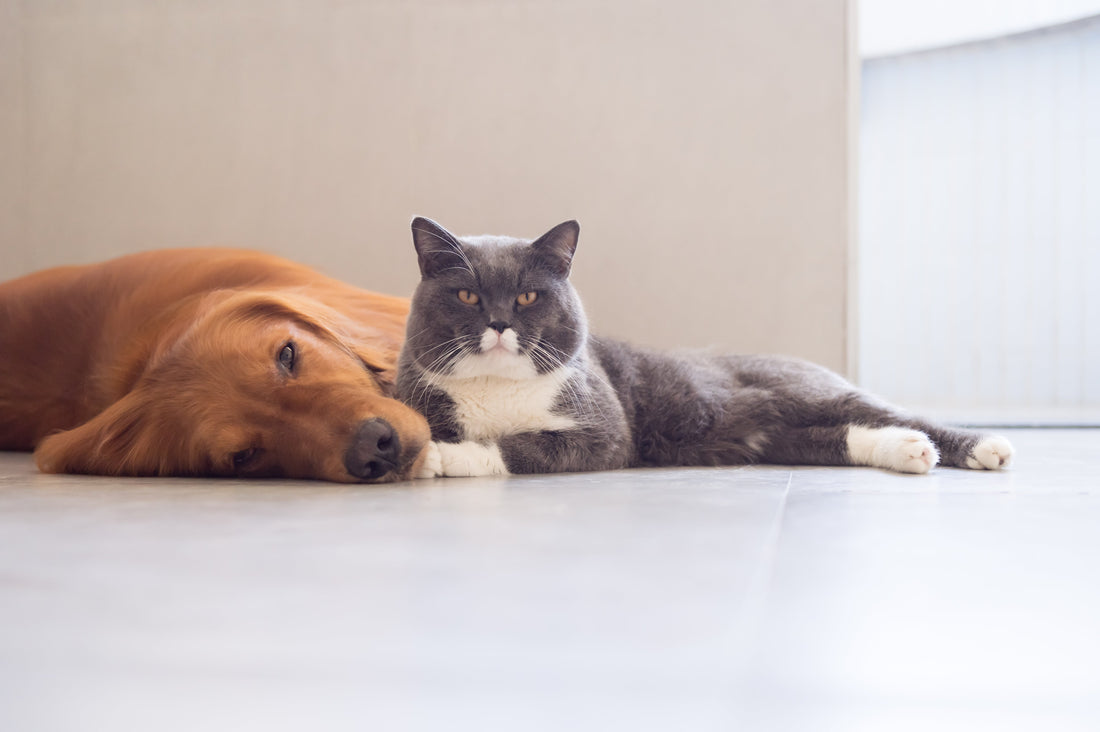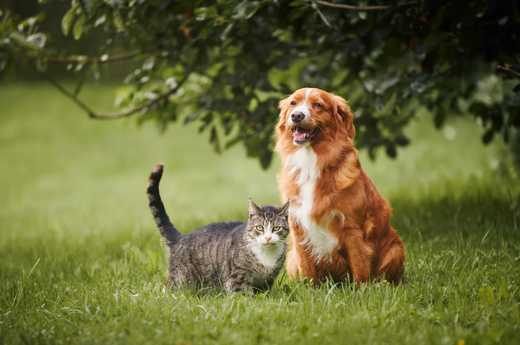Our pets are incredibly attuned to our emotions, and just like us, they can experience feelings of jealousy. This complex emotion can arise when they sense changes in your attention or routine, leading to behaviours that signal they need a little extra reassurance. Understanding how your emotions affect your pet’s jealousy—and vice versa—can help you create a more harmonious household.
How Your Emotions Can Trigger Jealousy in Pets
Pets are emotional sponges, soaking up the vibes you put out. When your attention shifts—whether it’s because of a new baby, a new pet, or even a new job—your pet might start feeling insecure. This can trigger jealousy, especially if they sense they’re not getting as much of your love and attention as they used to.
- Stress and Jealousy:
If you’re feeling stressed or overwhelmed, your pet can pick up on these emotions and may react by becoming more clingy or competitive for your attention. Dogs might start barking more or trying to push between you and the perceived “rival,” while cats might meow excessively or act out in other ways. Your stress can heighten their sense of insecurity, making them more prone to jealousy.
- Changes in Routine:
Pets thrive on routine, and any disruption—like spending less time with them or altering their feeding schedule—can make them feel unsettled. This insecurity can lead to jealous behaviours as they try to regain the attention and stability they’re used to. Your emotional state during these changes can either soothe or exacerbate their feelings of jealousy.
How Pet Jealousy Affects You
Just as your emotions can influence your pet’s behaviour, their jealousy can also have a big impact on you. A jealous pet might act out in ways that add stress to your life, like becoming destructive, overly demanding, or even aggressive. Understanding these behaviours as a response to jealousy can help you approach the situation with more empathy and patience.
Dealing with a jealous pet can add to your own stress, especially if their behaviour disrupts your daily routine or causes tension in the household. It’s important to recognise that their actions are often a cry for attention or reassurance, and addressing their emotional needs can help reduce your stress as well.
Constantly managing a pet’s jealous behaviours can be emotionally draining. It can feel like a never-ending cycle of trying to keep everyone happy, which can take a toll on your own mental health. Finding ways to balance your emotions and your pet’s needs is key to maintaining a healthy, happy home.
Strengthening the Bond with Your Pet
The good news is that there are plenty of ways to manage pet jealousy by nurturing your emotional connection and creating a stable environment for them.
Make sure to spend one-on-one time with your pet every day. Whether it’s a quiet cuddle session, a walk, or a playtime, this individual attention can help reassure them that they’re still a valued member of the family.
Sticking to a regular routine can also help reduce feelings of jealousy by providing your pet with a sense of stability and predictability. When they know what to expect, they’re less likely to feel insecure and more likely to feel secure in their place in your life.
Use positive reinforcement to reward good behaviour and encourage your pet to feel confident and secure. Treats, praise, and affection can go a long way in helping them associate positive feelings with sharing your attention with others.
If jealousy between pets is an issue, make sure each pet has their own space where they can retreat and feel secure. This reduces competition for resources and helps each pet feel safe and valued.
Recognising When Jealousy Becomes a Problem
Sometimes, despite your best efforts, jealousy can escalate into more serious behaviour issues. If your pet’s jealousy leads to aggression, destructive behaviour, or significant stress for you, it might be time to seek professional help.
A veterinarian or pet behaviourist can offer valuable insights into managing jealousy and addressing any underlying issues that might be contributing to your pet’s behaviour. They can help you develop a plan that works for both you and your pet, ensuring a more peaceful and harmonious home.
Remember that your emotional wellbeing is just as important as your pet’s. If you’re feeling overwhelmed, take steps to care for your own mental health. A balanced, calm emotional state can help you better manage your pet’s jealousy and create a more positive environment for everyone.
Exploring Jealousy
Jealousy in pets is a common but manageable issue that often stems from their deep emotional connection to you. By understanding how your emotions can influence their behaviour—and taking steps to address their feelings of insecurity—you can create a loving, balanced relationship that benefits both you and your furry friend.
At Healthy Pet Co., we’re here to support you with tips, resources, and products to help you and your pet live harmoniously together. Visit our blog and shop today to learn more about fostering a happy, jealousy-free home




